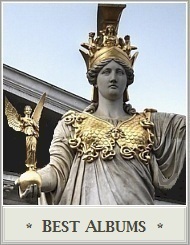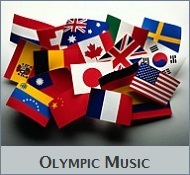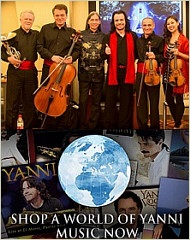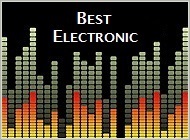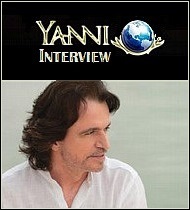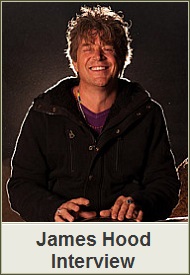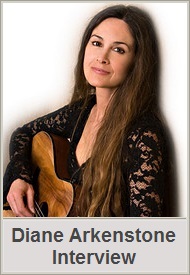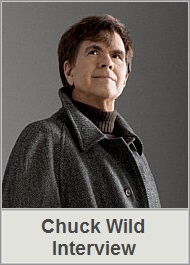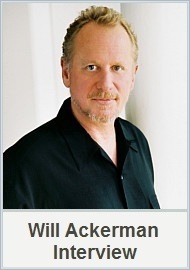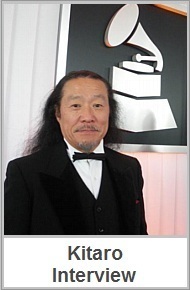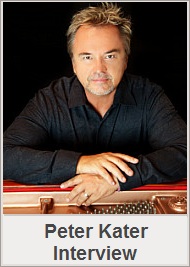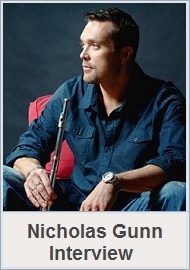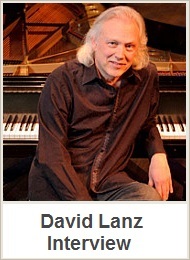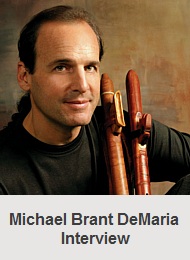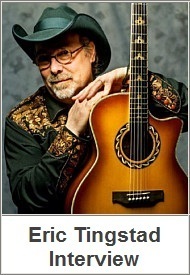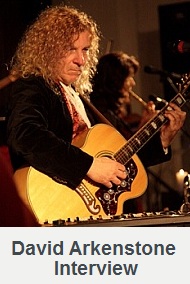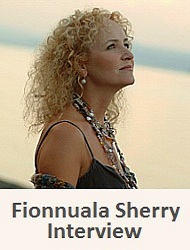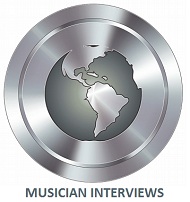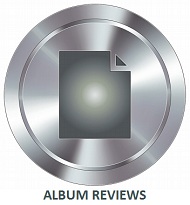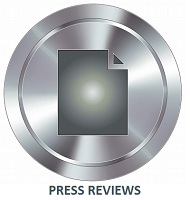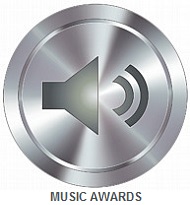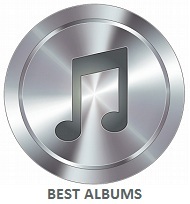Posts Tagged ‘Australis’

John P. Olsen, New Age Music World host and contributing author for newagemusic.nu has conducted an interview with Australis, composer and producer Oscar Aguayo. Drawing imagination from experience in his homeland and earliest life changing events, Australis is a mixture of New Age, Electronic, Ambient, Neo-Classic and Ethnic, in contrasting genres. Together there is a fine emotional depth in all of his releases that portray a wonderful contrast in individual expression.
Oscar Aguayo’s first album entitled Lifegiving was compiled from his earlier recollections as a young adult and portrays ethnic pathways leading towards a deep emotional expression, where each of the 10 songs blend into an intricate canopy filled with rich colorful instrumentation.
The second Australis release entitled The Gates of Reality is a beautiful mixture of contrasting genres in a fine balance of emotional depth in all 14 compositions. This release is based on individual concepts, and how perceptions affect our personal understanding of the world around us. The gates of Reality took 3 years to complete. We are pleased to present this interview to fan of Australis, and our site visitors.
Interview with Australis;
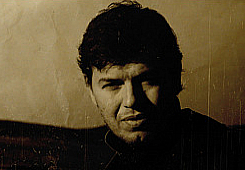 John Olsen : Would you tell us about yourself and your musical background?
John Olsen : Would you tell us about yourself and your musical background?
Oscar Aguayo : I was born in Peru a few decades ago, the oldest son in a family where music-playing was part of everyday life. My earliest memories are crowded with images of my mother at home playing the guitar while singing, and the alien mixture of emotions I experienced from those songs. You see, my mother’s songs weren’t children songs designed to expose children to a reduced, predigested set of emotions. Instead, she used to sing “adult” songs that dealt with all feelings, most of them completely unknown to me at three years of age.
I think about this frequently. Judging by how deep those memories are anchored in my mind and by the unique taste they still have to me to this day, I have to assume that although my conscious mind was confused by the unknown feelings conveyed by my mother’s singing, my subconscious must have been breathlessly making associations, creating patterns; interpreting the meaning of those melodies from what I perceived in my mother’s voice and facial expressions, experiencing brand new emotions not from life but from her music. Whatever the explanation may be, since as far as I can remember I experience music as a language born from emotions with the purpose of transmitting those emotions to others.
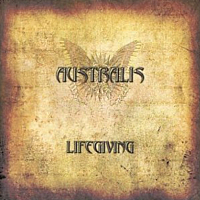 John : You currently have 2 New Age/Neo-Classical albums available for purchase. Lifegiving from 2005 and your most recent, The Gates of Reality from 2008. What awards and recognition have you received from these 2 projects at present?
John : You currently have 2 New Age/Neo-Classical albums available for purchase. Lifegiving from 2005 and your most recent, The Gates of Reality from 2008. What awards and recognition have you received from these 2 projects at present?
Oscar Aguayo : Lifegiving earned me the “Morpheus Music 2004 Best Independent Artist” early in 2005. Several tracks from it have been selected to be included in several compilations from the US and Europe; and additionally, the entire disc was licensed for re-release and distribution in Asia by an international label. The Gates of Reality is still too new to have earned any awards to this date, although it is already reaching the same level of popularity of its predecessor. I have to admit, however, that no award or recognition can compare to the fulfillment experienced when you learn that your music has touched somebody. No public award can match that kind of personal satisfaction.
John : How would you describe your music to someone not familiar with your very unique style of music?
Oscar Aguayo : That’s a very good question because every person understands music in their own terms. Everybody tries to come up with names and words to define music, everybody tries to define its genres and to delimit styles within those genres despite the fact that music is unique to each person. So, how to describe my music when my description represents only my personal perceptions ?
Even when in the most broad level my music falls within what we currently know as New Age/Ambient, I still want to avoid sub-categorizing it. Instead, I would try describing it by its intentions: to challenge the mind and captivate the heart, to seduce the listener to explore their own emotional universe, to provoke their imagination and awaken their memory. With that as a foundation, I would add a brief description of its acoustic elements: an amalgam of spacious evolving pads, seductive exotic rhythms, evocative atmospheres and aromatic melodies. Then I would finish adding that my music is composed as a reaction to whatever emotional stimuli I am experiencing at that moment. In other words, each track originates as a response to a real feeling or set of feelings I am going through.
 John : Could you explain the circumstances or reasons for becoming a musician, and why you choose New Age music over all other genres?
John : Could you explain the circumstances or reasons for becoming a musician, and why you choose New Age music over all other genres?
Oscar Aguayo : In all truth, I am a latecomer. You see, although I was exposed to music since birth and developed an intimate relationship with it since very early in my life; mine was a conservative family. The world of professional music was perceived – and with good reason – as a morally risky environment and therefore my parents never encouraged me on that direction. It wasn’t a stern prohibition, of course, and I was still able to compose music and create a few bands during my teenage years, gaining stage experience and musical proficiency along the way. However, the idea of pursuing a professional career as a musician was never serious at home, and even years after I moved out to live by myself, I never saw myself as one. That was until my father passed away eleven years ago.
Without going into details, all my perspectives changed after that event. The meanings of every aspect of life shifted under my feet and I started to discover that many of the things I thought were important, actually weren’t; and that many areas I took from granted and regarded as trivial were actually the ones that give substance to life. In the middle of this process, as things were falling into their new places it became clear to me that music was much more than just a fun hobby. I found there was so much to say through it, but so far I had never taken it seriously enough. That’s when I started considering composing and producing music professionally.
To answer the second part of the question, I don’t think music genre is as important as the messages and the emotions you as a composer want to convey. And since the range of human emotions is so wide, choosing New Age was more of an evolutionary process than an intentional one for me. I’ve composed in many different genres since age 12. It’s my personal opinion that New Age is the only musical genre that doesn’t impose creative parameters on the composer. In that sense, I think New Age is the less defined genre of all, providing the composer with an unmatched freedom of musical expression.
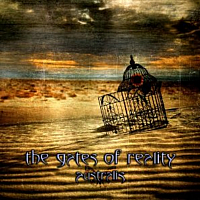 John : Since genre is not as important to you, than the emotions you want to inspire for your listeners, What emotions can one expect to feel from your music?
John : Since genre is not as important to you, than the emotions you want to inspire for your listeners, What emotions can one expect to feel from your music?
Oscar Aguayo : This is an interesting question. At the beginning I assumed my listeners would experience the same emotions I experienced when composing a particular piece. If I felt specially moved by something, I would translate those feelings into a musical piece and was sure that whoever listened to it would be moved in similar ways. I’ve learned soon that is not the case, though. The truth is that every person has their own unique emotional structure, and although we all coincide on the generic emotional levels, our interpretation of more specific emotional stimulus is very personal. So, even when I can speak about the emotions I convey through my music, I am simply unable to speak about the emotions listeners will experience from it. Of course, there’s nothing extraordinary in my emotions.
They are the same we all experience: the many contrasts of love; our enduring hopes; the deep fears of our times; the numberless little joys of everyday life. The passion in our hearts; our endless curiosity; our desire to explore and to find things bigger than ourselves. The darker angles of our souls can’t be excluded: our shortcomings and selfishness; the secrets we keep only to ourselves. My music originates from all of these emotions. On the listeners’ side, I will always defend their freedom to experience my – and all – music in their own unique ways, to extract from it the emotions their hearts need and enjoy.
John : Can you describe what your albums are about, or can you share what thoughts and experiences from your homeland come to mind for each of your 2 albums: Lifegiving & The Gates of Reality?
Oscar Aguayo : Lifegiving is a free compilation of the varied tracks I composed when I redefined my own musical intentions. It felt so incredibly good to musically express myself in complete honesty that I let myself go. In fact, the album’s title came from the concept of a birth, an act of giving and receiving life. The result is an album where each track is its own little world.
 In contrast, The Gates of Reality is a more intentional work. In 2005 I finished Lifegiving very aware of the role imagination plays in our daily lives, very interested in how our unique perceptions affect our personal understanding of the world around us. Love, hate, hope, desolation, peace, war, faith, disbelief; all of our emotions are the result of our perceptions, and our perceptions are the result of the interaction between intellect and imagination. It quickly became a set of concepts worth of exploration. It took me three years to finish.
In contrast, The Gates of Reality is a more intentional work. In 2005 I finished Lifegiving very aware of the role imagination plays in our daily lives, very interested in how our unique perceptions affect our personal understanding of the world around us. Love, hate, hope, desolation, peace, war, faith, disbelief; all of our emotions are the result of our perceptions, and our perceptions are the result of the interaction between intellect and imagination. It quickly became a set of concepts worth of exploration. It took me three years to finish.
John : Oscar, you have said in the past that music has the ability to break political and social barriers. I understand your comment somewhat, but what exactly did you mean by that?
Oscar Aguayo : I mean that beneath our external labels we all need the same things. We may not speak the same language, we may live within countries in conflict with each other, we may have inherited the external characteristics of a particular race, we may belong to particular social groups and sympathize with particular political points of view. But no matter how different or incompatible we could seem to be towards each other, we all have a heart that feels and loves, that fears and hopes.
That’s where music plays a unique role. We may be unable to speak to each other, we may find ourselves unable to overcome our external labels – of race, of patriotism, of ideology – in order to communicate with each other in good faith; but we are all susceptible to music. We may come from centuries of injustice, or from ephemeral conditions of privilege; but we are all vulnerable to music because music ignores the superficial areas of the human condition and goes straight to the deep ones, the ones that are common to everybody. In this sense I’ve had the honor of having personal communication with listeners from both sides of armed conflicts and with listeners from religious groups incompatible with each other; and share their thoughts and dreams and hopes, all as a consequence of music.
I think as a sentient species, we are still very primitive. Our technology may be very advanced and our knowledge very vast; but we still have to learn the basics. We are able to take a humans beings to the moon, but we are unable to feed the poor in our own cities. We have harnessed the power to destroy our own home planet, but we are still ignorant on how to live in peace among ourselves. Yes, we are very primitive. And it will be a very long time until we learn the basics. Fortunately, we have music to help us blur the many imaginary lines that separate us from us.
John : Recently a fan of yours posted a comment on my review of The Gates of Reality, and said; “Let me comment that this (Australis) is one of the best musicians I’ve ever heard.” Since this person will likely be reading this interview too, how would you respond to the person who posted this comment?
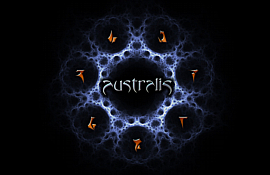 Oscar Aguayo : I would start expressing how deeply honored those warm words make me feel. I would want that person to know how grateful I am that my music appeals to their soul and that they took the time to express that on your review.
Oscar Aguayo : I would start expressing how deeply honored those warm words make me feel. I would want that person to know how grateful I am that my music appeals to their soul and that they took the time to express that on your review.
Nothing motivates the independent musician better and deeper than knowing his/her music has moved somebody. It is a concept hard to explain unless one understands what “independent” means in the music industry.
If you compare the world of professional music to an ocean, an independent – in other words, “unsigned” – artist is someone who sets to cross the Atlantic on board of a minute canoe. While “signed” artists make the same trip on board of a cruise with a crew of people paid to drive the boat, the independent musician is usually alone and depends absolutely on his/her own devices. Most likely, he/she won’t make it; but he/she tries nonetheless. His progress, if any, will be discouragingly slow. The independent musician must absolutely love what he/she is doing, otherwise who would voluntarily decide to embark into such an unfavorable endeavor?
That is why comments like the one you mentioned are so meaningful to the independent musician. They make you realize you are not alone in the middle of a dark ocean on a reduced piece of wood keeping you afloat, but that you in the company of countless other human being sailing their own dark oceans by themselves. Suddenly everything takes deeper meanings and you know you are in the right path; all because of comments like those.
John : Is there anything you would like to tell our readers that I have not asked or brought up during our interview?
 Oscar Aguayo : Only that I appreciate very much this opportunity to share with you and all your many readers my personal impressions about so many subjects. As I tried to say earlier, the listener is what makes all the difference for the composer. Believe me, I’ve composed private music for decades. It is only when the composer interacts – musically or verbally, like through your interview today – with the listener that everything starts to make sense.
Oscar Aguayo : Only that I appreciate very much this opportunity to share with you and all your many readers my personal impressions about so many subjects. As I tried to say earlier, the listener is what makes all the difference for the composer. Believe me, I’ve composed private music for decades. It is only when the composer interacts – musically or verbally, like through your interview today – with the listener that everything starts to make sense.
On that subject, let me invite all of your readers to visit Australis official website for the newest material and latest news, at: AustralisMusic.com. Also, I’ve finally opened accounts on Facebook and on Twitter where behind scenes details are posted several times a day. Please feel free to drop by and say hello. John, again, thank you very much for inviting me. You can also read my New Age Music World pages dedicated to Australis. Photos are courtesy australismusic.com.
Oscar Aguayo, having the artist title Australis, is a fine musician I have written about and interviewed in the past. His 2 albums Lifegiving & The Gates of Reality are both excellent choices for New Age fans who enjoy top quality music.
 Lifegiving was compiled from his earlier recollections as a young adult and portrays ethnic pathways leading towards a deep emotional expression, where each of the 10 songs blend into an intricate canopy filled with rich colorful instrumentation.
Lifegiving was compiled from his earlier recollections as a young adult and portrays ethnic pathways leading towards a deep emotional expression, where each of the 10 songs blend into an intricate canopy filled with rich colorful instrumentation.
The Gates of Reality is a mixture in contrasting genres in a fine balance of emotional depth in all 14 compositions. Based on individual concepts and how perceptions affect our personal understanding of the world around us, this album took 3 years to complete.
The in-depth interview with Oscar Aguayo and my album reviews for Lifegiving & The Gates of Reality can be read at our page dedicated to Australis. Oscar is working on his third album and songs can be heard when subscribing to his newsletter, plus behind the scenes details about Australis projects can be found daily at his Facebook & Twitter pages.
Visit AustralisMusic.com to sample or purchase and find at his CDBaby.com page. Below is my Australis review quote giving you a hint of Oscar Aguayo’s fascinating orchestrations, along with the song video Essentia.
Australis is a New Age artist title that treks into the mysterious sub-genre lands of Ambient, World, Electronic, and Neo Classical, having ethnic pathways with deep emotional expression, where each song blends into an intricate canopy filled with rich colorful instrumentation.
In the very beginning, 6 million square miles of rain forests exist worldwide but because of relatively recent deforestation, only 2.6 million square miles remain. What is really alarming is that this major deforestation took place within the past 50 years. It is estimated that over 85 % of the species of animals, plants, and microorganisms now remaining in these vital ecosystems will be destroyed by the year 2020, with increasing timber losses of 56,000 square miles each year.
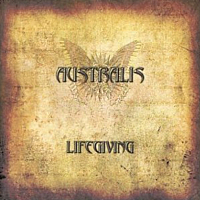 Oscar Aguayo is the musician with the artist title of Australis. Oscar is one among many persons who has first hand knowledge and shares this environmental concern about the rain forests, having been born and raised in a tropical rain forest region of the Amazonian Basin in Peru, South America. While Oscar presently resides in America, his 2005 electronic album Lifegiving makes reference to this complex political and social question involving our rain forests around the world.
Oscar Aguayo is the musician with the artist title of Australis. Oscar is one among many persons who has first hand knowledge and shares this environmental concern about the rain forests, having been born and raised in a tropical rain forest region of the Amazonian Basin in Peru, South America. While Oscar presently resides in America, his 2005 electronic album Lifegiving makes reference to this complex political and social question involving our rain forests around the world.
Australis first album Lifegiving is a New Age music endeavor that steps into a lush undergrowth in the mysterious sub-genre land of Ambient, World, Electronica, and Classical, with Ethnic music pathways.
The electronic music of Australis finds deep emotional expression, where each discovery blends into an intricate canopy filled with rich colorful instrumentation. The 10 songs on Lifegiving which represent his personal insight, are portrayed on this album using careful craftsmanship that in turn introduces a strong emotive content that exists beyond any cultural, political, or geographical limitations.
This unique excursion begins with the title song Lifegiving, where faint chirping of jungle soundscapes ascend slowly into the lush surroundings. The single key piano notes then sketch an image of dew drops from the jungle canopy, falling onto dense tropical vegetation below. The deep recesses of secluded terrain are soon lit by violin and string interlude that together emerge to install thoughts of dusk like visibility. While glancing upward, small fragments of sun beams penetrate the full tree tops above, changing your perspective on the time of day. Slowly as the song starts to fade, total darkness begins to descend around you, bringing with it soft audible animal chants while they return to their nightly song ritual.
 The Enchantment is a song rich in orchestral diversity with lively strings and woodwinds engaging in a native dance full of tempo and key changes that both excite and captivate those who have entered this mysterious land of musical enchantment.
The Enchantment is a song rich in orchestral diversity with lively strings and woodwinds engaging in a native dance full of tempo and key changes that both excite and captivate those who have entered this mysterious land of musical enchantment.
Sacred Earth is an upbeat Ethnic song that explores the inner boundaries of this earthly sanctuary largely responsible for our life giving resources of medicine, water and air that we breath. While woodwind, flute, and piano play a colorful fragrant harmony, exotic instruments lend their perspective sovereignty, giving this song a unique essence. The bongo drums, woodblock, and abundant percussion claves enhance this song by an indirect border, giving it a deep tribal influence without overriding the primary melody.
Oscar Aguayo’s brother Alvaro lends his talent by playing an exotic 10 string Charango in this song, adding refinement and warmth to the experience. The song ends by fading into a soft forest rainfall, leaving you with a collective memory of your musical excursion filled with creativity and interest on this album, and our life giving rain forests worth saving.
In a conservative estimate, over 6000 life giving trees in our rain forests around the world were lost during the short amount of time it took you to read my Lifegiving album review.
An interview with Oscar Aguayo of Australis will be published soon, so that you may get the facts behind this amazing artist. You may read about the latest Australis album – The Gates of Reality review and visit AustralisMusic.com. Sample the album at CDBaby. Picture copyright Bigstockphoto.com – gtrmtt84.
The epic quest for personal style in composing is pretty evident in a new release entitled The Gates of Realities from South American born composer and producer Oscar Aguayo, who is titled as Australis.
 Australis is an artist title taken from the Latin word meaning Southern or from the South, and also symbolic of the artist himself which emphasizes Oscar Aguayo’s early influences he felt during his very first experiences in musical emotion in his home country as a young adult.
Australis is an artist title taken from the Latin word meaning Southern or from the South, and also symbolic of the artist himself which emphasizes Oscar Aguayo’s early influences he felt during his very first experiences in musical emotion in his home country as a young adult.
The primarily mid tempo music will encompass the listener with rich, deep tones to translate for you what the artist has drawn from his personal conclusions in how New Age music should be interpreted. I can tell you it is simply wonderful electronic music!
Drawing imagination from his homeland recollections and earliest life changing events, the project is a mixture of New Age, Electronic, Ambient, Neo-Classic and Ethnic, in contrasting genres. Together there is a fine balance of emotional depth in all 14 compositions on his second album of individual expression.
 Track 4 Promises of Light is a dark and mysterious example of a longing desire for the presence of light in which that wishful song is titled.
Track 4 Promises of Light is a dark and mysterious example of a longing desire for the presence of light in which that wishful song is titled.
Track 5 Paqta Kutemunqa begins with an ethnic quality by the ancient chants, whisperings and woodwind flute which blends together beautifully.
If one closed their eyes they could almost imagine themselves as an archaeologist exploring the inner depths of ancient ruins, and then finding the lost treasures hidden away for centuries. This is an epic quest I found mysterious but inspirational.
Australis first project is titled Lifegiving which is another deep and meaningful project that received much online radio airplay, and earned Australis the Morpheus Music’s Best New and Independent Artist Award in 2004, so it is no surprise his The Gates of Reality project has also received abundant online radio attention, even before the album was actually released.
I hope more will be available from Australis, the artist who draws his artistic imagination from experiences during his early formative years. After listening to his music I can say his recollections must have been fascinating.
Visit the unique AustralisMusic.com to learn more about this great artist. Picture copyright Big Stock Photo – Siart.

